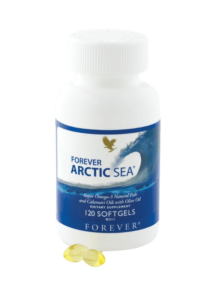
Breastfeeding is a remarkable journey that provides numerous advantages for both the infant and the mother. Among the many considerations during this phase, the role of omega-3 fatty acids cannot be overstated. Omega-3s, especially DHA and EPA, play a pivotal role in brain development and overall health. In this article, we will delve into why omega-3s are both safe and essential for breastfeeding mothers and their infants, with strong support from scientific research.
The Science Underlying Omega-3s and Breastfeeding:
-
IQ Development: A plethora of studies have established a positive link between the duration of breastfeeding and a child’s IQ during early years. Breast milk naturally contains omega-3 fatty acids, which are crucial for supporting the infant’s brain development.
-
Variation in Omega-3 Levels: Research has demonstrated that DHA levels in breast milk differ among mothers from various regions and dietary patterns. Mothers following a typical American diet (SAD) tend to have lower omega-3 content in their breast milk compared to those from cultures with higher seafood consumption.Omega-3 is considered to be one of the best supplements for Women’s Health.Omega-3 a type of polyunsaturated fat is key to optimal for women’s health. Discover ways to pick the best Omega-3 supplements for women
-
Arctic Sea by Forever Living Products is Nutritional supplement based on vitamin E , fish oil and olive oil .A superior nutritional supplement combining Omega-3 with Omega-9 is best selection for breastfeeding mothers.
-
Supplements for Enhanced Omega-3 Content: Breastfeeding mothers who incorporate omega-3 supplements into their routine tend to produce breast milk with elevated levels of EPA and DHA. This underscores the importance of ensuring sufficient omega-3 intake to benefit both the mother and the infant.
-
Health Benefits of Breast Milk: The higher omega-3 fat content in breast milk compared to infant formula contributes to the enhanced health and development of breastfed infants. Omega-3 fatty acids play a crucial role in nurturing the overall well-being of the baby.
Omega-3s and Brain Development:
A baby’s brain experiences its most rapid growth during the final trimester of pregnancy and the initial two years after birth. Omega-3 EPA and DHA are considered essential fats for fostering brain development. Therefore, it is prudent for breastfeeding mothers to include omega-3 supplements in their diet while nursing to support their infant’s cognitive growth.
Omega-3s and Postpartum Depression: Recent theories regarding postpartum depression suggest a possible link to omega-3 insufficiency. Omega-3 fatty acids, being vital for brain health, are believed to play a role in preventing postpartum depression. When a mother’s diet lacks sufficient omega-3s, the rapidly developing brain of the infant takes precedence, potentially resulting in an omega-3 deficiency in the mother, which could contribute to postpartum depression.
Dosage Recommendations: To ensure adequate omega-3 intake for both the mother and the infant, a general guideline is to consume a daily supplement containing approximately a gram (1,000 mg) of combined EPA and DHA. While theoretically feasible to obtain ample omega-3s from a diet rich in wild salmon, the reality is that most individuals do not regularly consume this amount. Consequently, omega-3 supplements are often recommended.
It is recommended that pregnant and lactating women consume at least 200 mg DHA per day. Omega-3 fatty acids, particularly DHA and EPA, are not only safe but also indispensable for breastfeeding mothers and their infants. Extensive scientific research underscores the critical role of omega-3s in supporting infant brain development and suggests a potential role in preventing postpartum depression in mothers. Consulting with a healthcare provider for personalized recommendations and selecting reputable omega-3 supplement brands are vital steps to ensure the well-being of both the mother and the infant throughout the breastfeeding journey
